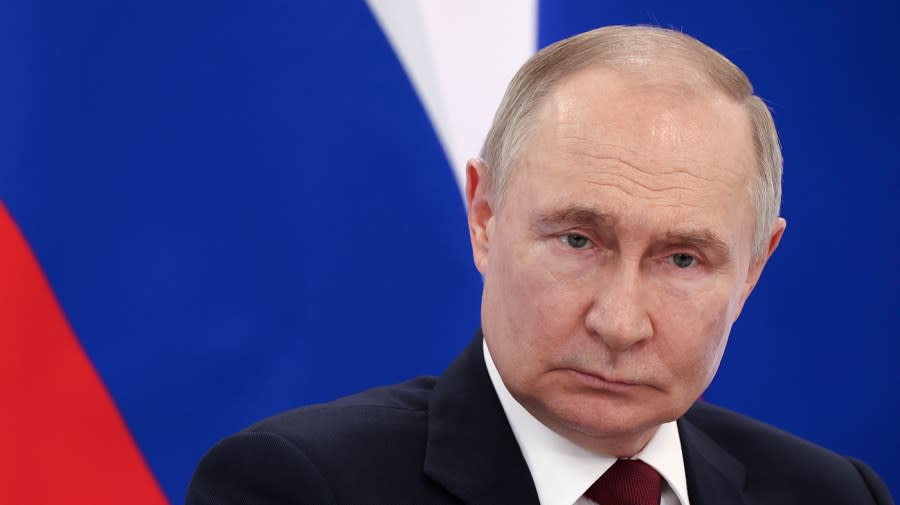Russian President, Vladimir Putin has issued a list of conditions for ending the war in Ukraine, including a written pledge from Western leaders to halt NATO’s eastward expansion and a partial lifting of sanctions on Russia, according to three Russian sources familiar with ongoing negotiations.
U.S. President Donald Trump, who has repeatedly vowed to end the conflict—the deadliest in Europe since World War II—has recently grown frustrated with Putin. On Tuesday, Trump warned that the Russian leader was “playing with fire” by refusing to engage in ceasefire talks, despite Russian gains on the battlefield.
According to the sources, following a two-hour phone conversation with Trump last week, Putin agreed to work on a memorandum with Ukraine outlining the framework for a potential peace agreement, including a timeline for a ceasefire. Russia is reportedly drafting its version of the document but has not given a timeframe for completion.
Western and Ukrainian officials have accused Moscow of stalling negotiations while continuing its military offensive in eastern Ukraine.
“Putin is ready to make peace—but not at any price,” said a senior Russian source close to the Kremlin, who requested anonymity.
According to the sources, Russia’s demands include:
1.A written commitment by Western powers not to expand NATO to include Ukraine, Georgia, Moldova, or other former Soviet states.
2.Ukrainian neutrality.
3.Lifting of certain Western sanctions.
4.Resolution of the issue of frozen Russian sovereign assets.
5.Guarantees for the protection of Russian-speaking populations in Ukraine.
One source said that if Putin fails to secure peace on his terms, he will attempt to demonstrate to Ukraine and European allies that further military action would result in even greater costs for them.
Neither the Kremlin nor Ukraine’s President Volodymyr Zelensky’s office responded to the demands. NATO also declined to comment, though the alliance has previously stated that it will not abandon its “open door” policy for new members in response to Russian demands.
Putin launched the full-scale invasion of Ukraine in February 2022, following years of tension and a simmering conflict in eastern Ukraine. As of now, Russia controls just under 20% of Ukrainian territory, including large parts of Donetsk, Luhansk, Zaporizhzhia, and Kherson regions, in addition to Crimea, which it annexed in 2014.
Though Russia has made territorial gains over the past year, both sides continue to suffer heavy losses, and the economic toll on Russia is mounting. Reuters previously reported Putin’s growing concern over labor shortages, rising inflation, and declining oil revenues, which are key to Russia’s economy.
A second source said Putin has become increasingly inflexible on territorial issues and is now demanding full control of the four eastern regions claimed by Russia.“Putin has toughened his position,” the source noted.
Putin has long viewed NATO’s expansion as a threat to Russian security. He has repeatedly claimed that the West broke verbal promises made at the end of the Cold War to limit NATO’s reach.
In 2008, NATO declared Ukraine and Georgia would eventually become members. Ukraine later enshrined its ambition to join NATO and the European Union in its constitution in 2019.
In a draft agreement proposed in 2021, Moscow sought written guarantees from NATO to halt further expansion, including Ukrainian accession. Western officials rejected the proposal, arguing that Russia could not dictate NATO policy.
Putin reportedly wants the current peace terms in writing, believing that verbal assurances in the 1990s—such as those allegedly made by then-U.S. Secretary of State James Baker to Soviet leader Mikhail Gorbachev—were misleading and ultimately disregarded.
Russia’s invasion has had significant geopolitical consequences. Finland joined NATO in 2023, followed by Sweden in 2024, citing security concerns.
Western leaders have repeatedly warned that a Russian victory in Ukraine could embolden Moscow to attack NATO members, potentially sparking a wider war. Moscow has dismissed such warnings as scaremongering, while simultaneously cautioning that the conflict could escalate into a broader confrontation if not resolved.
Meanwhile, President Trump has warned that failure to reach a deal could result in fresh sanctions. On social media, he recently accused Putin of going “absolutely CRAZY” following a large-scale aerial attack on Ukraine.
